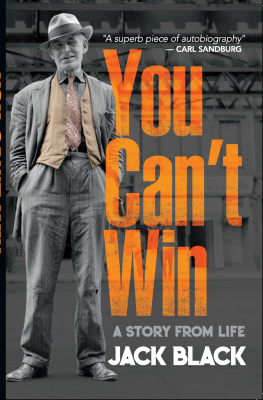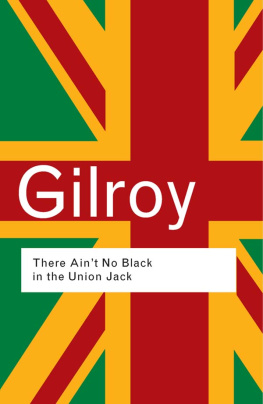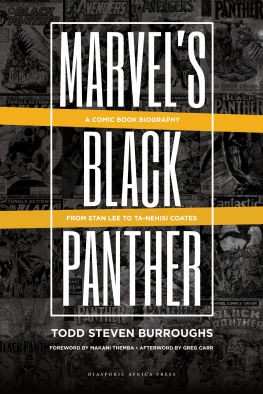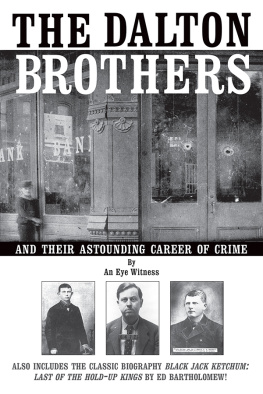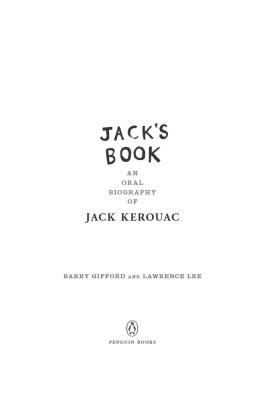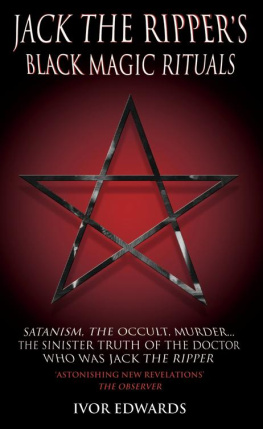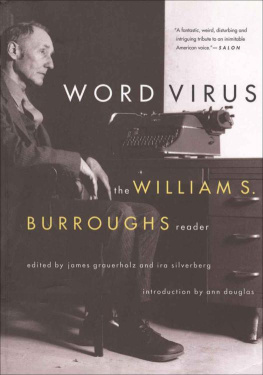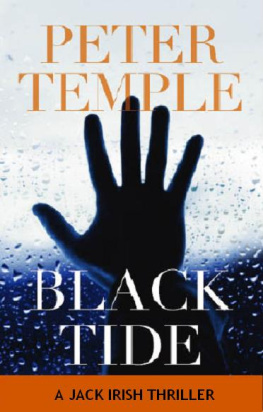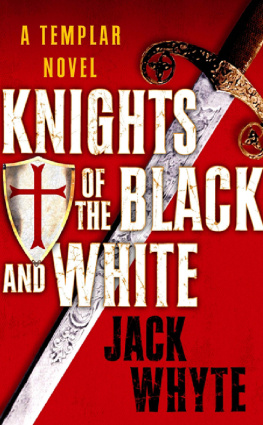Jack Black - You Cant Win
Here you can read online Jack Black - You Cant Win full text of the book (entire story) in english for free. Download pdf and epub, get meaning, cover and reviews about this ebook. City: Port Townsend, year: 2013, publisher: Feral House, genre: Non-fiction / History. Description of the work, (preface) as well as reviews are available. Best literature library LitArk.com created for fans of good reading and offers a wide selection of genres:
Romance novel
Science fiction
Adventure
Detective
Science
History
Home and family
Prose
Art
Politics
Computer
Non-fiction
Religion
Business
Children
Humor
Choose a favorite category and find really read worthwhile books. Enjoy immersion in the world of imagination, feel the emotions of the characters or learn something new for yourself, make an fascinating discovery.
- Book:You Cant Win
- Author:
- Publisher:Feral House
- Genre:
- Year:2013
- City:Port Townsend
- Rating:4 / 5
- Favourites:Add to favourites
- Your mark:
- 80
- 1
- 2
- 3
- 4
- 5
You Cant Win: summary, description and annotation
We offer to read an annotation, description, summary or preface (depends on what the author of the book "You Cant Win" wrote himself). If you haven't found the necessary information about the book — write in the comments, we will try to find it.
You Cant Win — read online for free the complete book (whole text) full work
Below is the text of the book, divided by pages. System saving the place of the last page read, allows you to conveniently read the book "You Cant Win" online for free, without having to search again every time where you left off. Put a bookmark, and you can go to the page where you finished reading at any time.
Font size:
Interval:
Bookmark:



By Jack Black

Jack Black, Burglar and Author by Donald Kennison
Foreword by William S. Burroughs
Two Essays by Jack Black
Illustrations by Joe Coleman

FERAL HOUSE
You Cant Win 2013 by Feral House
You Cant Win was originally published in 1926 by The MacMillan Company and reprinted in 1988 with the William Burroughs Introduction and Joe Coleman cover by Amok Press.
The new Feral House edition includes Jack, Burglar and Author 2013 by Donald Kennison, Whats Wrong With the Right People 1929 by Jack Black, originally published by Harpers Magazine, and A Burglar Looks At Law and Codes 1930 by Jack Black, originally published by Harpers Magazine.
ISBN: 978-1-9362-3965-8
Feral House
1240 W. Sims Way
Suite 124
Port Townsend WA 98368
feralhouse.com
In the summer and autumn of 1916, the San Francisco Bulletin, helmed by the fighting editor Fremont Older, and the San Francisco Call, owned by big-shot publisher William Randolph Hearst, engaged in a protracted period of newspaper warring that, following an intense and escalating tit-for-tat, resulted in an unflagging series of all too serious threats and some arrests too.
Then, on the evening of October 31, the Bulletins circulation man Jack Black, precisely three years out of San Quentin, was getting out of a service car in front of the newspapers building on Market Street when he was approached by a circulator of the Call named Robert Wall. They knew each other and, according to a witness, they spoke briefly before Wall pulled out a pistol and shot Black in the gut. He was rushed to the citys Central Emergency Hospital, feared to be fatally struck. As yet another in a long line of acts of sheer will, Black survived.
The papers of course had a grand day of it. Bulletin Man Hearst Victim ran the front-page double-bannered headline in the next mornings Bulletin. Shooter Stricken, Victim Still Lives. The newspapers caption over Blacks photo read John Blackfatally wounded. And below that: Making Good he falls a victim of assassin journalism. Besides the call of their mans premature death the reportage, though occasionally hysterical, was detailed and aggressive. The Call, however, printed this headline: Gunman Shot Is Vengeful, and reported that Black had reached toward his pocket for a pistol just before Wall fired, though it was immediately proved Black carried no gun. The article then went on to assassinate Jacks character but good. All this would continue to be front-page news for both papers for several days.
Encomiums for Jack Black were printed in the Bulletin too because the newspapers staffers believed their own paper (John Black Hearsts Latest Victimfatally wounded). While the Bulletin would offer readers an overly bright and picturesque series of portraits of a man its writers knew and, in their experience, trusted, the Call writers went out of their way in tearing Black down, repeatedly describing him as a bad man, a con man, a thug and professional gunman, and in successive days printing a list of his criminal record, from 1898s Folsom stretch to his arrest by San Francisco police in June of the year for assault and harassment, and in August, too, by federal agents for impersonating an officer in order to enter the Calls offices for nefarious purposes, in both cases on duty as circulating agent for his newspaper.
Fact is, both newspapers willingly allowed circumstances to rush out of control by headlining events in their competitiveness and so labeling a battle of news on the streets a reign of violence in an ongoing fight that perhaps to readers eyes appeared more an insular war of words. By calling in the police the Call instigated things even further. On the evening of the shooting, the Calls late edition of October 31 had printed a mug shot of Jack Black and claimed he was head of a ring of Bulletin employees whose mission it was to regularly hassle and seriously disturb Call newsboys and vendors, and what was the city going to do about it. Later that night the Calls own Bob Wall reached into his pistol pocket and made a victim of Black, capping a year of threats and recriminations between employees high and low of both papers. After the lead editorialist of the Call asked, following the shooting, What are the police going to do when Black, the gunman, starts up Market Street to avenge his wrongs? the Bulletins editorial writer could only chuckle, headlining a piece Hearst Is Worlds Funniest Assassin and righteously defending Jack to his readers.
Meanwhile, in the hospital Black made a statement in keeping with his character, which now not only the newspaper staff but the whole of the newspaper-reading city would witness: Wall Not to Blame, Says Black. Jack went on to say, for the record and true to his code, that he thought Wall must have been put up to the task of gunning for him. He understood that Wall had thought he, Jack, had cost him his job at the Bulletin and that for weeks he had been trying to tell him this. It was all a misunderstanding, exacerbated by the tensions of the moment, another front in the ongoing newspaper war. I dont want anything to happen to Bob Wall. If they prosecute him theyll have to do it without my aid. I just want to let it go.
For Walls part he disputed the fact that he was after Jack (in fact, against the reportage of his employer) for having lost him his previous job. He even went so far as to say he had nothing against Black but that another news agent had told him Jack was out to get him. There had been so much talk of getting people that last night I got a gun and meant to look after myself, he stated. He insisted that Black had always been friendly to him and that Call people had urged him to violence. Now he wished to apologize. I am sorry I shot Jack Black. I hope he dont die.
Before he could let it all go, though, Jack wanted to see Wall. A detective brought him up to his room and asked Jack to identify Wall as his assailant (oddly enough, the man, Burke, was the same copper whod been among those who had retrieved Black from Canada late in 1912, which resulted in his reduced sentence and his final bit inside at Quentin). Jack refused to do so. He wanted to settle with Bob Wall later, in his own way, but before they left the room Jack raised himself up as much as he could and socked Wall in the eye. Later, when he would not name Wall to the district attorney either or cooperate in the D.A.s case by pressing charges, he asked the court to dismiss the case. It was dismissed.

In his convalescence, down at Fremont and Mrs. Olders ranch in Cupertino in the fall and early winter of the year, Jack began to speak aloud and in detail for the first time in his life about his experiences as an outlaw and a lifetime in the underworld. His audience included not only the Olders and a few visiting Bulletin reporters and columnists but also the heralded muckraking journalist Lincoln Steffens, a friend of Fremonts who on a visit to the ranch during this time stayed for a long night of Blacks storytelling that affected him deeply, and he told Older so later in a letter. I must always feel now the note we struck that night at your home when Jack Black was talking about his friends, in and out of hell, Steffens began. There was serenity about it, a resignation, and an understanding which was perfect, and so, of course, there was no judgment, either of men or of life. Such a tone must have resonated particularly deeply within this man in that his lifes work was the indignant reporting of mens wrongdoing, which in the days news carried with it a heavy daily dose of the righteous judge. I wish we could go through life in that spirit, Steffens continued, and then concludes, Every time I get out of tune he remembers that special evening with Older and Black and asks Older to thank him for meI am so grateful to him.
Next pageFont size:
Interval:
Bookmark:
Similar books «You Cant Win»
Look at similar books to You Cant Win. We have selected literature similar in name and meaning in the hope of providing readers with more options to find new, interesting, not yet read works.
Discussion, reviews of the book You Cant Win and just readers' own opinions. Leave your comments, write what you think about the work, its meaning or the main characters. Specify what exactly you liked and what you didn't like, and why you think so.


